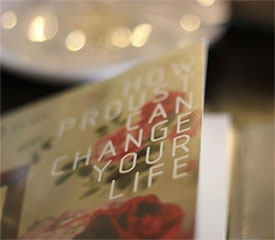MFK Fisher was one of the best writers of the last century. Her skills were often overlooked by critics, though, who didn’t find her subject matter weighty or important enough. After all, she was just a food writer, which was “women’s stuff, a trifle.”
We in the food business wrestle with versions of this sneaky bias almost every day. It’s there in every rushed lunch and the feeling that a meal in the middle of the day is a guilty, expendable indulgence. Or in every server who feels ashamed of the work, that it’s something he or she can only justify doing “for now.” It’s there every time we struggle with how to price our food fairly, for the labor and quality that actually goes into it, and not based on stereotypes set by subsidies and junk food.
Most of us like or, perhaps furtively, love food. And of course, we all know we need it to live and thrive. Yet there remains a stubborn tendency to downplay its seriousness; somewhere deep inside all of us, we regard eating as a lower, baser concern-even as we fetishize it on Instagram, secretly obsess about what we should or shouldn’t imbibe, what harm or benefit it is or isn’t causing us and despite the fact that growing, cooking and dining remains the last lingering ways in which we connect with one another in the physical realm.
MFK Fisher reminded us that our appetite is our humanity–our craving, our yearning, perforated by those fleeting moments of complete satisfaction, where desire balances thusness-a razor’s edge that, by some crazy coincidence of the senses, some synesthesia, demands our attention, forces our mind into the absolute presence where pure memory crystallizes into being. The food-the flavor, the smell, the texture is like a tether to memory.
Marcel Proust understood this, with his famous madeleine dipped in tea the catalyst to a ninety-page cascade of recollection in Remembrance of Things Past. Yet Proust himself had a famously austere diet consisting only of two cups of café au lait and two croissants a day, which was delivered to him by his lifelong housekeeper Celeste, but which he ate alone in his bedroom. Perhaps his hunger fueled his writing, a kind of hungering.
That hungering-after flavor, after truth-inspired Fisher. This holiday season, a time when food anchors so many of our traditions, Fisher inspires us:
… People ask me: Why do you write about food, and eating, and drinking? Why don’t you write about the struggle for power and security, and about love, the way others do. They ask it accusingly as if I were somehow gross, unfaithful to the honor of my craft….
The easiest answer is to say that, like most humans, I am hungry. But there is more than that. It seems to me that our three basic needs, for food and security and love are so mixed and mingled and entwined that we cannot straightly think of one without the others. So it happens that when I write of hunger, I am really writing about love and the hunger for it, and warmth and the love of it and the hunger for it.”
–From The Gastronomical Me by MFK Fisher
As flavor makers, we hope we can also be moment makers, memory makers, and tradition makers, and that we put love into our food every day.


